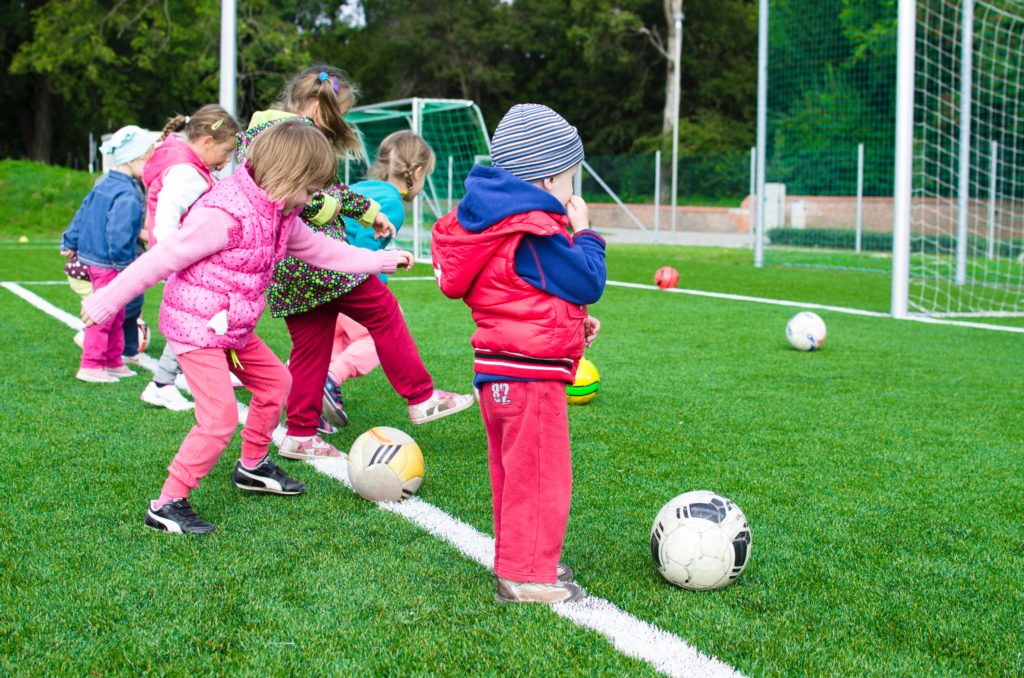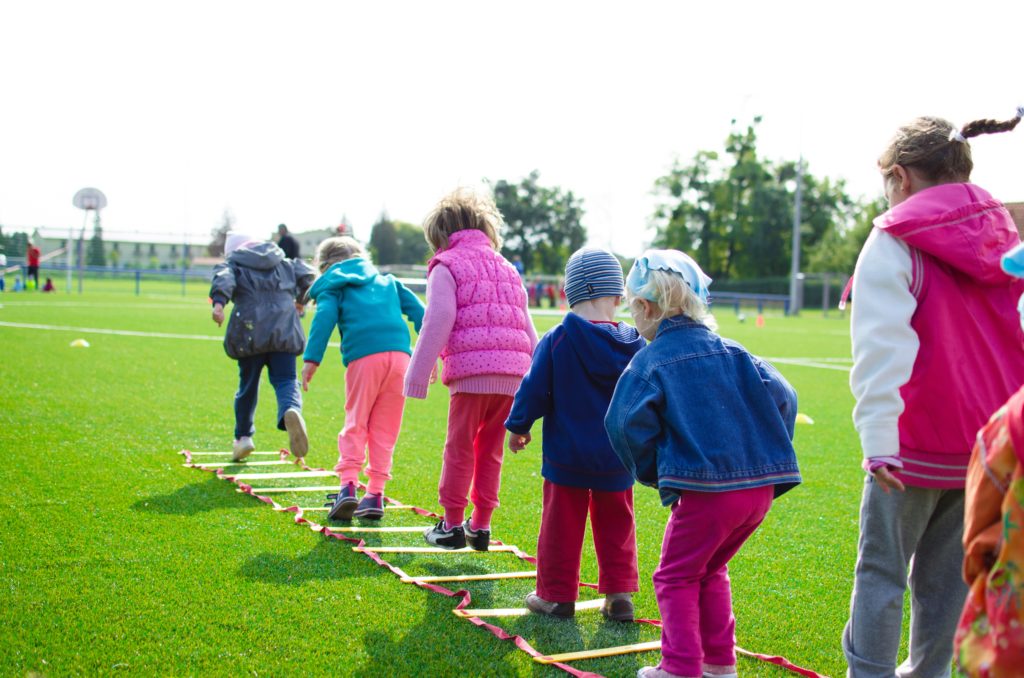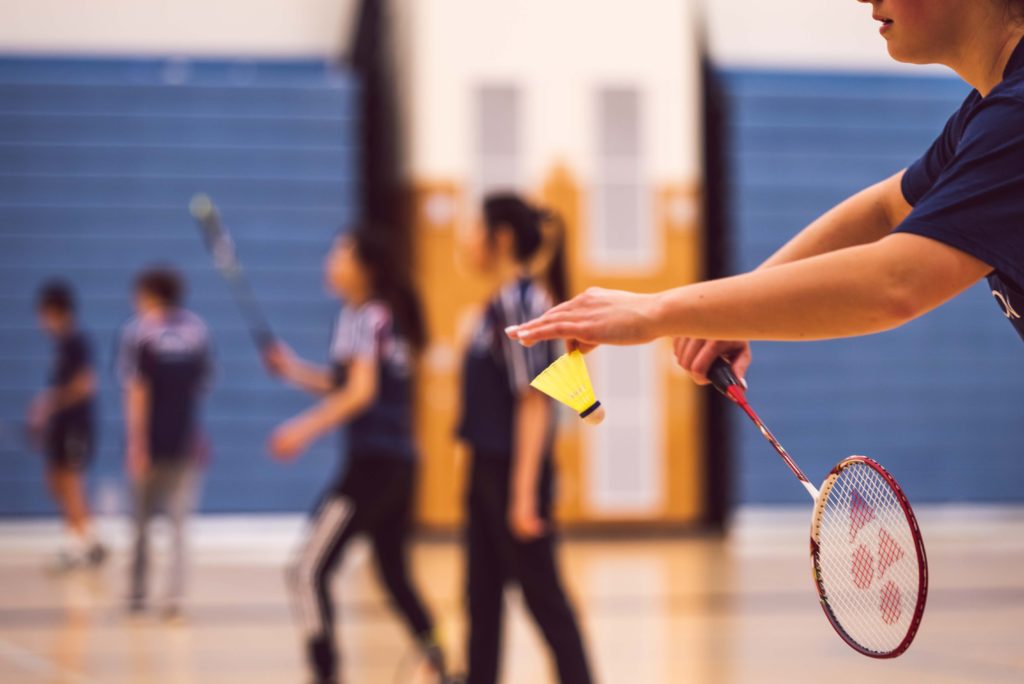With an abundance of parenting websites and motivational sources nowadays, parenting in the modern age can feel like a race to perfection. Things like how much screen time you allow, which brand of toys are safe, and which schools are reputably effective can sometimes demand a humongous amount of research. After all, who does not want the best for their kids?

However, the stress can get so overwhelming for some parents that it’s easy to forget that kids are just what they are—kids. Sometimes, you just have to let them experience the world in their own way.
Play is where children are in their natural element. Engaging in play activates their imagination and creativity, and they learn so much just by interacting with their environment.
Team sports provide an avenue for your children to improve their developmental, emotional, social, and cognitive skills during their most crucial formative stages. These skills translate into life skills that will help catapult them later into a fulfilling life of success. A good example of this is Jim Goodwin, known for his strong leadership skills and determination.
Learning the Importance of Working Together

Social collaboration is an integral part of human life, and it’s important that your kids learn the social values critical to being an important team player.
Play teaches your kids how to be a leader and a follower, both of which have merits of their own. In the real world, your child must know that they will not lead the pack all the time. Sometimes, they need to concede their own weaknesses and be humble enough to make way for those who know better. Similarly, when the situation calls for it, they need to learn how to step up, whether that means taking an important risk or standing up for what they believe is right.
Learning about Limits

Games teach your kids all about rules. To be able to win, they must conduct themselves within the permitted confines of these rules. Rules like no rough play, touching the ball only in certain limited ways, and following role hierarchies serve as practice for real-world situations.
Beyond the playground, rules get more complex. And the good player who knows the rules intimately enough will be able to creatively devise a way through or a way out. This is where the ingenious aspects of the individual are developed.
Learning about limits means learning that there’s no such thing as absolute freedom and that real success is all about control and personal discipline. Learning about limits means learning about what’s possible and what’s not and learning to live with it. Learning about limits is getting to know your personal strengths and weaknesses and using this knowledge to make wise decisions.
Learning the Power of Belonging

Humans are naturally social animals, and the need to interact is as basic as food or shelter. In fact, in one of the longest studies on happiness conducted by Harvard, strong social connections are found to be one of the determinants of a happy life.
Play may be all about winning, but it’s not all that matters. It’s also about being in a team, understanding people, and being understood in return to achieve a collective goal. These early connections teach children what they initially know about friendship and often become their unconscious guide to working with people throughout life.
Learning the Value of Mistakes
One of the most important lessons a man learns in life is that mistakes are not always failures. Unfortunately, not everyone learns this when they should—at a young age.
On the playground, the rules of the game allow for plenty of possibilities, mistakes included. It can be a simple misstep, forgetting a fundamental rule, or just losing one’s cool. In times like these, the child must be guided. They must be encouraged to be graceful in defeat, understand what has caused the error, and to rise back and do better.

Experiencing the Euphoria of Winning
The euphoria of winning can be addictive and intensely motivating. Someone who has tasted the ‘glory’ of success is thought to learn the importance of the game.
In life, you get more than one try. When you lose, there’s always another chance. When you win, the world celebrates with you.
When kids taste the euphoria of winning at a young age, they learn to replicate this victory in other aspects of their lives. And what can you want more for your child than to have them set themselves up for success? Play teaches them that it can be done and that hard work can be fun.
Gear Them Up

At the end of the day, the rules of the playground are not so different from the rules of life. When you find yourself overthinking your parenting ways, perhaps you just need to don on their gloves and mittens, tie up their shoelaces, and lead them to the park.
Good parenting is not so much about control as it is simply about letting them explore and discover. Lead them on, and lead them right.


3 comments
Great post with us
Holocausteducationfund.org is the site you should visit. I found a lot of interesting facts and reliable information here. All you need is a couple of minutes. https://holocausteducationfund.org